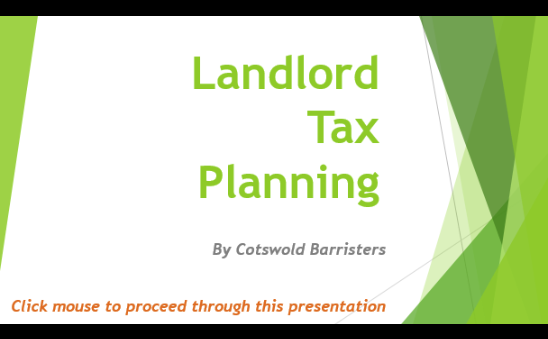
Beneficial Interest Company Transfer Structure Explained
Make Text BiggerBICT is an abbreviation for “Beneficial Interest Company Transfer”.
BICT has nothing whatsoever to do with avoiding tax. Its sole purpose is avoiding the need to refinance at the point of incorporation.
Where existing mortgage terms are particularly competitive, and/or when the costs typically associated with refinancing are prohibitively expensive, that is when the BICT structure comes into its own.
The BICT structure is a basis of sale of a ‘whole business’ which includes: –
- A business sale agreement by Deed
- A second Deed which transfers the beneficial interest of ‘the whole business” to the company
- An agency agreement whereby the company appoints the legal owners
of the properties as its agents to make payments to the existing financiers of the business, for which the company will have covenanted with the legal owners to be responsible for.
What is beneficial interest?
There are two components to property ownership:-
- Legal ownership – which is what mortgage lenders take their security against
- Beneficial ownership – which is what HMRC base taxation on.
A well-established principle is that taxation follows beneficial ownership. A common example of this is if you ask your Bank or stock-broker to purchase shares for you. The Bank (or Stockbroker) buy the shares as your nominee.
Technically, your bank or your stockbrokers are the legal owners and you own the beneficial interest. When dividends are declared, or the shares are sold for the profit, you, as the beneficial owner, are responsible for the resultant tax, not the Bank or the Stockbroker.
Using the BICT model follows exactly the same principles. You take the position of the Bank because you purchased the properties. However, the Beneficial Interest is transferred to the company.
The BICT process transfers 100% of the beneficial interest (income and capital gain) in the property rental business to a company, which satisfies HMRC’s rules for transferring the ‘whole business’ under s162 TCGA 1992.
BICT involves no change of legal ownership so far as HM Land Registry is concerned. The consequence is that existing mortgages can remain in place without affecting the mortgage lenders rights.
The Deeds empower the company to be able to call upon the legal owner(s) to transfer the legal ownership of the property at any time. 100% of the net sale proceeds must be transferred to the company. In reality, the persons controlling the company are the same as the legal owners of the properties, hence there should never be a conflict.
Due to the structure of the Deeds, the legal owners of the property rental business now stand as bare trustees, i.e. they only hold the legal title in name but don’t own any share of the rental profits or capital gains. The outcome is that the entirety of the business sits on the balance sheet of the company and all income and expenses associated with the property portfolio accrue to the company.
Do mortgage lenders approve BICT?
The short answer is no. However, unless their mortgage terms specifically preclude the transfer of beneficial ownership there is little they can do to prevent its use.
In June 2016 Mark Alexander (founder of Property118) won a representative action case in the Court of Appeal which provides useful case law on this point. A crucial element of the case established whether mortgage lenders can call in loans if the borrower is not in default. The Court of Appeal ruled they CANNOT.
Due diligence in regards to the implementation of BICT includes an experienced, regulated and fully insured Barrister-At-Law checking mortgage T&C’s to ensure that no clauses exist to specifically prohibit the transfer of beneficial interest.
If you seek permission to transfer beneficial interest your mortgage lender will generally decline. This is because, in order to consent to the transfer of beneficial interest they would compelled to re-underwrite the loan, taking into consideration the new beneficial owners status.
Your mortgage lender cannot be compelled to review the existing contract so they are more likely to offer to re-underwrite as a new mortgage, especially if they are now offering loans on inferior terms to those you are already enjoying. This is because they know that whether you stay with them or redeem and move your business elsewhere they can lend the redeemed mortgage funds more profitably.
It is also important to note that transfers of beneficial ownership are completely invisible to mortgage lenders.
Given there is no requirement to seek consent from your mortgage lenders it is simply better not to ask for it!
How will mortgage lenders react to a company bank account now making mortgage payments?
The mortgage payments will not be made from the company bank account.
The BICT structure includes a contract appointing you as clearing agents of the company in regards to the servicing of the mortgage. As an agent, you will simply collect the mortgage interest from the company and pay it over to the mortgage lender personally in accordance with your contract to the mortgage lender. This is similar to appointing a letting agent to collect rents from a tenant and paying them to the landlord. HMRC do not treat the payments to the agent as income because they are only acting as a clearing agent. Only their commission for acting as agent is deemed as income by HMRC, however, you will not be charging commission. If no payment is taken for acting as clearing agent for the company then no tax is due.
What about granting tenancies?
Only the legal owner of a property can grant a tenancy. However, a company can be appointed to grant a tenancy on behalf of the legal owner in much the same way as any landlord can instruct a letting agent to grant a tenancy. On the basis that BICT will have established that the company is the legal recipient of the benefit of any rent, the company will retain that rent and be taxed on it accordingly.
What about when the time comes to refinance?
The company will already own 100% of the beneficial interests in the properties. It will need to call for the legal title to be transferred to the company before you can refinance. There will be no additional CGT or SDLT payable on the transfers. This is because these matters would have been accounted for when the beneficial interests of the partnership were transferred to the company.
New refinancing applications will be in the name of the company. It is highly likely that mortgage lenders will still underwrite their risks as if they are lending to you personally, hence you will need to retain an unblemished personal credit status as well as for the holding company. Mortgage lenders are also likely to ask you to personally guarantee their exposure to risk.
Due to changes in tax legislation and underwriting rules set by the PRA, more lenders are offering mortgage products to Limited Companies than ever before. Their underwriting criteria is more relaxed than is for individual borrowers as they are not required to consider the implications of finance cost relief being restricted for companies. Such is the competition for new limited company mortgage lending these days that most lenders providing mortgages to companies do so at the same rates of interest as those offered to individual borrowers. There is speculation that Limited Company mortgage rates might even become more competitive than for individual borrowers
Selling Property
The sale occurs in exactly the same way as it would have done before beneficial interest was transferred to the company. However, 100% of the net sale proceeds will become the property of the company once the conveyancing solicitor dealing with the sale has settled any mortgages secured against the property and after deducting any costs of sale such as legal and estate agency fees.
It is for the Directors of the company to decide how much of the retained profits are distributed to shareholders in the form of dividends, or used to repay company debt, or held in reserve, or reinvested.
The company could, theoretically, sell all properties and repay all creditors (including mortgages and Director/Shareholder loans) and they pay dividends, salaries or bonuses to Directors and shareholders until there is no money left in the company. The company could also loan money to another company.
Show Book a Tax Planning ConsultationPlease visit the book a tax planning consultation page to book your consultation!
Landlord Tax Planning Consultancy is the core business activity of Property118 Limited (in association with Cotswold Barristers).
There will never be an optimal ‘one-size-fits-all’ business structure for tax purposes. The presentation below provides a useful overview of some of the options you might like to discuss with us.



